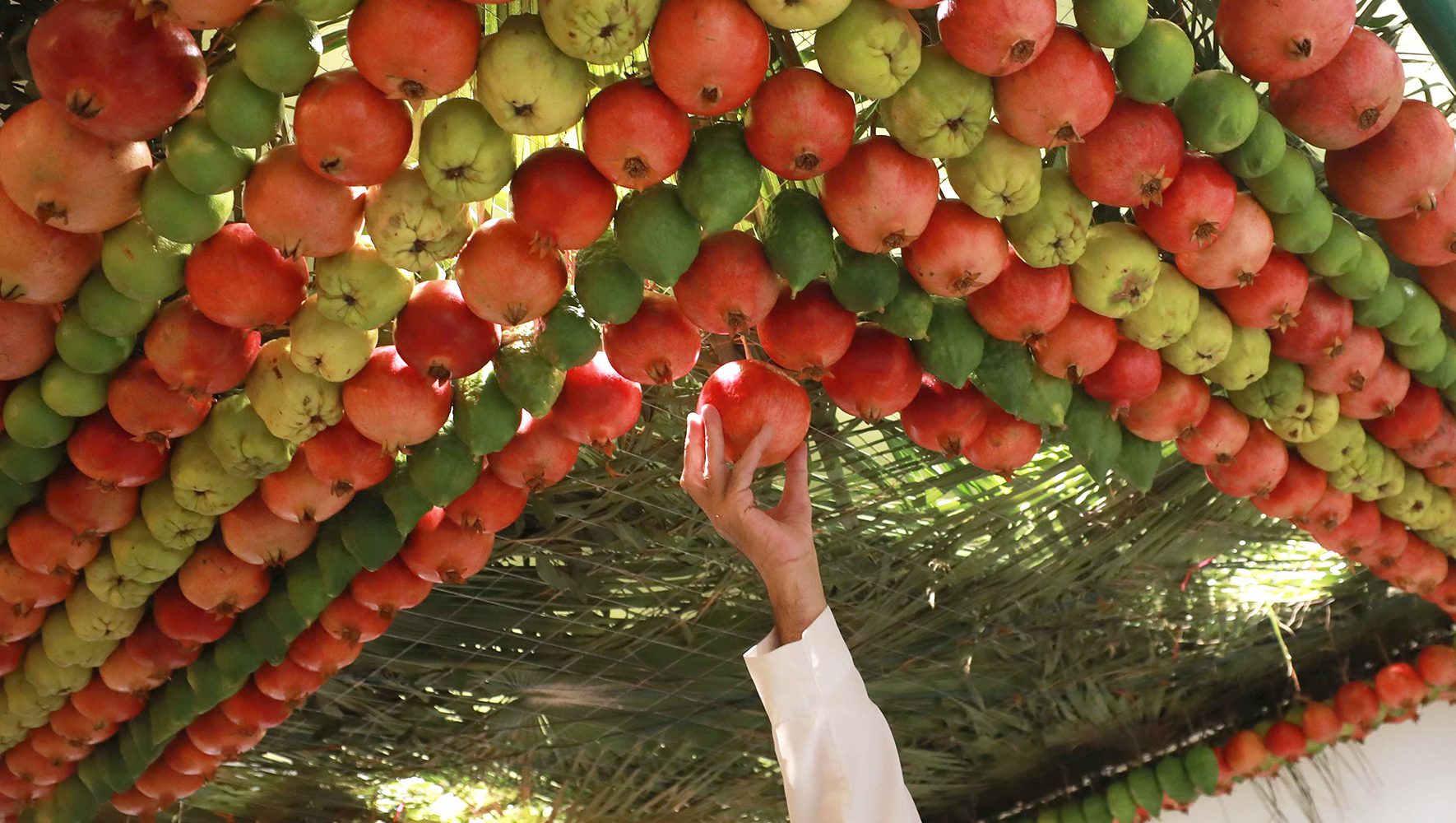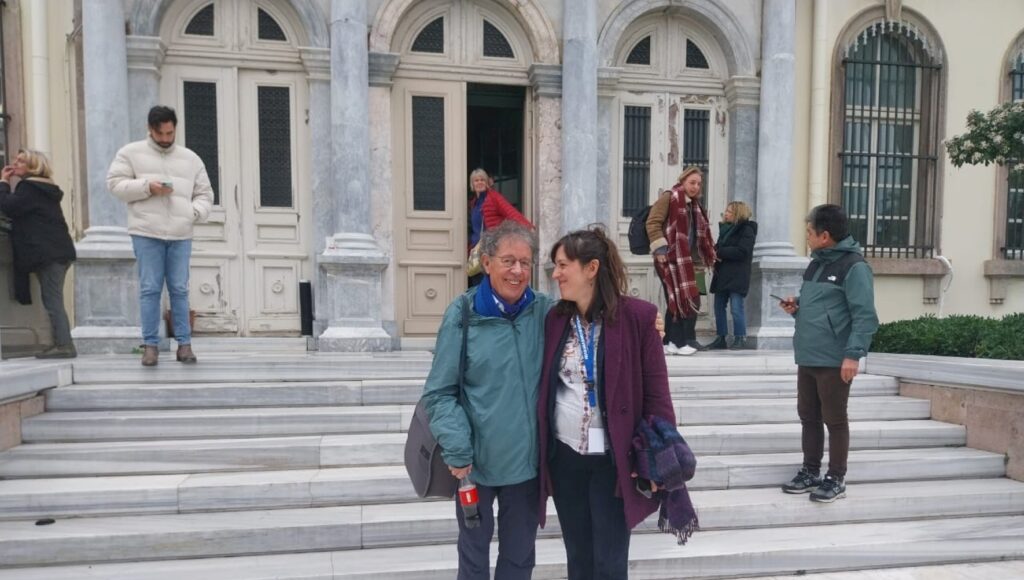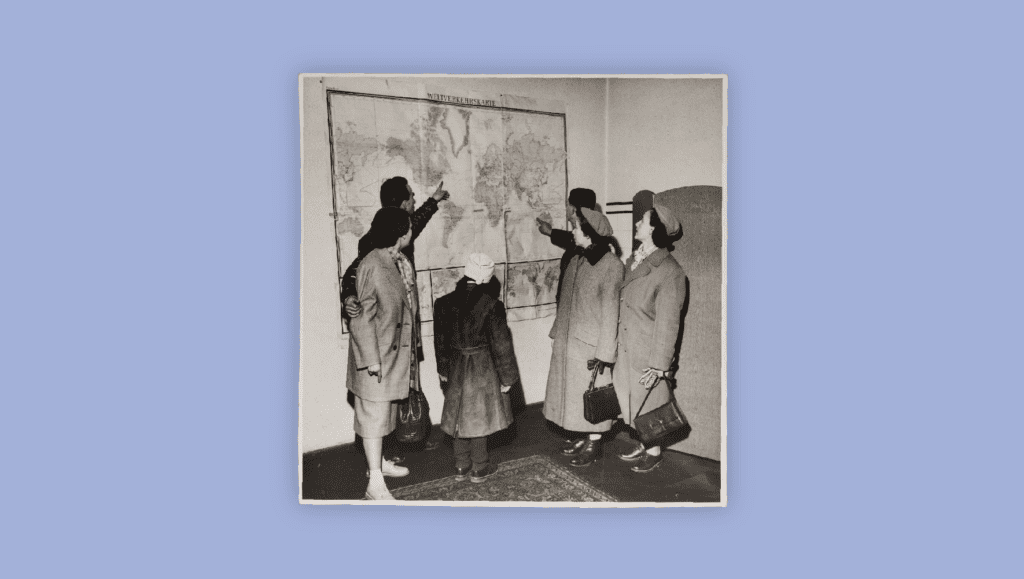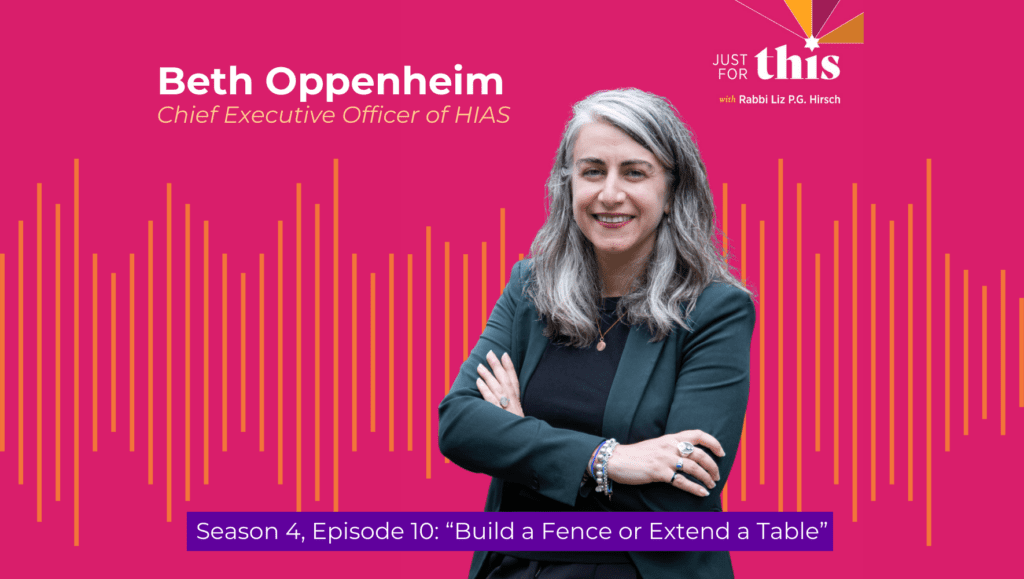
Many of us are walking through this moment in a state of shock for the ways inhumanity and cruelty have not only emerged in our culture but have come to dominate.
This is not who we are. We declare that the lows of the moment are an anomaly. An aberration. We champion this idea because we feel it gives us the power to change it back — to return to a default that matches our world view. But this proclamation about the natural state of being — it’s not true.
What we are experiencing this moment is not new. Our ability to center human dignity as a collective is in a constant state of flux. Humanity has always wrestled between our better angels and our demons. There are historical eras to celebrate and ones that bring us shame. The Book of Ecclesiastes that we read on Sukkot proclaimed the certainty of change millennia ago declaring “there is nothing new under the sun.”
We ignore the fluidity of history at our own peril. When we believe that which is fleeting to be inevitable, we find ourselves inept at navigating a moment of cultural flux. We must build our understanding of the world around the idea that such cultural deviations are possible. We cannot waste precious time coming to terms with a new reality when we must direct our energy to countering it.
Give today
Ecclesiastes’ claim that there’s nothing new under the sun is not fatalism. Quite the opposite. It is a reminder that we will not be stuck in this reality forever. We have a profound sense of agency to shape what comes next. Because whatever is happening now — good or bad — it is not forever.
Judaism is nothing if not a religion of spiritual gumption. We argue with God. We change God’s mind. We refuse to be passive recipients of fate.
And that sense of holy chutzpah is the spiritual playbook for those of us horrified by this moment. For every recycled xenophobic trope and policy, there’s a countering tool already in existence under the sun for us to resurrect, retool, and deploy again.
The images we get from popular culture about resistance to inhumanity are often depicted as heroic and herculean — out of reach for so many who wish to help but have limits about the detriment they invite into their own lives. But small declarations and acts of humanity are not small at all. They are precisely the mechanism that enables us to maintain our values through those eras that challenge how we wish to shape the world.
The poet Zussman Segalowicz wrote as a refugee in World War II about his journey to survive. “I cannot forget the nightmare of my wandering, but at the same time, I treasure every bright moment, every kind word, every night’s lodging offered me, every drink of water, every service. These memories are the capital I have gathered in the days of the war. I have nothing else and want nothing else.”
Those deeds of kindness sustained him physically in the moment. But they also sustained his sense of humanity for the rest of his life. I have often wondered whether the people who offered those small acts of kindness sensed their significance. I’m not sure they did.
Small declarations and acts of humanity are not small at all. They are precisely the mechanism that enables us to maintain our values through those eras that challenge how we wish to shape the world.
A couple of weeks ago, I connected with a volunteer, Helena, who lives a life punctuated by these small acts of humanity — most recently through immigrant “Know Your Rights” campaigns. In a world where many of us feel overwhelmed and don’t know where to start, I wanted to understand what enabled her to act.
“To be honest, I haven’t really given it very much thought and have rather just looked for opportunities to volunteer and do some good, as they arose. I was raised with a very strong sense of tikkun olam. My father came from Europe in 1943 and saw the ravages of both WWI and WWII. He knew that in the U.S. of the 1950s we lived a charmed life and were truly privileged. So my sister and I grew up with the sense that we were to dedicate our lives to making the world a better place. It just seems natural to me, especially in my retired state, to commit to doing one activity, a mitzvah (a commandment to do good), about once a week.”
One act of goodness. Once a week. Saying yes to that email in her inbox asking for help. I understand her commitment to be as much an act of spiritual self-preservation as it is a declaration of faith in a different future — a way to affirm who her father raised her to be in the world.
Medieval commentator Ibn Ezra believed that the commandments Jewish tradition requires of us are for the purpose of reinforcing our heart and our commitment to our values. “For the heart is the core of the commandments. Some commandments require the uttering of statements which serve to reinforce the heart. Others consist of deeds so that a person will utter the required statements.”*
Small declarations and acts of humanity are powerful not because they instantaneously transform the world but because they maintain our sense of purpose through it. We control how we choose to respond. We determine whether the world will overwhelm our sense of humanity. We have a say in what the world will look like and who we will be on other side of this moment under the sun.
*Ibn Ezra Commentary on Deuteronomy 30:14



